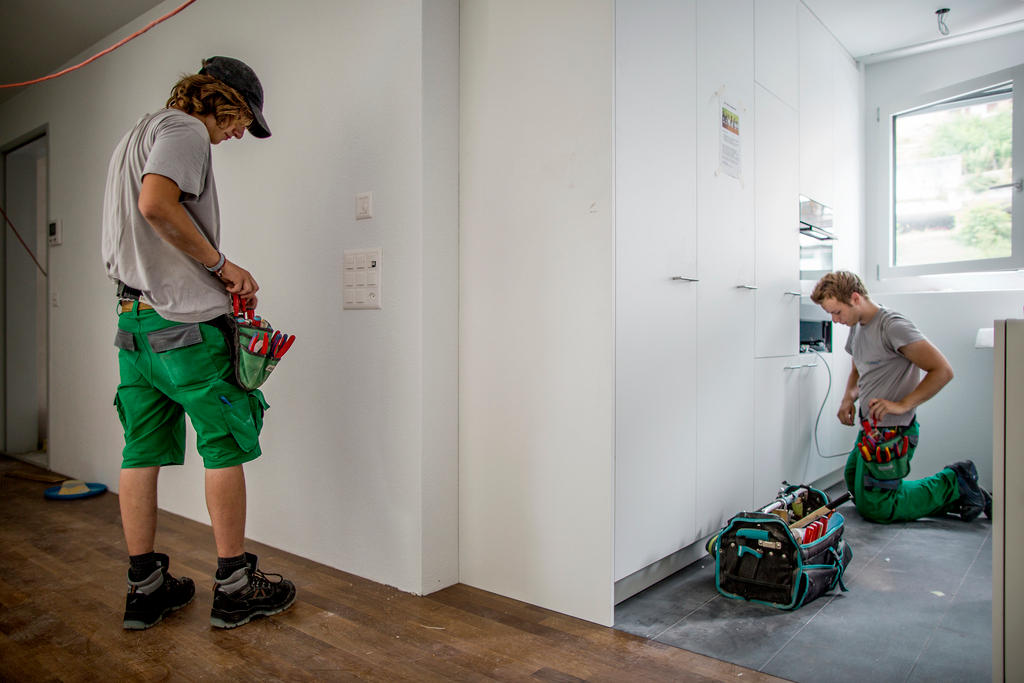
Switzerland at risk of skilled labour shortage

The record-low unemployment rate of 2.4% is expected to lead to a shortage of skilled professionals. Some industries and businesses are already feeling the squeeze.
Last May, 110,000 people were registered as unemployed – 18% less compared with the previous year. The situation has improved particularly for young people (15- to 24-year-olds) and those over 50.
“In the hospitality industry, it’s already very difficult to find enough staff. That’s why we are hesitant to dismiss unsuitable employees, because we know it will not be easy to replace them,” a Lausanne restaurant owner told swissinfo.ch.

More
Swiss jobless rate drops to 2.4%
Some cantons in central Switzerland, such as Obwalden, have an unemployment rate of less than 1%, forcing businesses to decline orders.
Nationwide, the list of occupations affected by a labour shortage includes the IT industry, law, metal processing, mechanical engineering, transport, construction and the health sector.
Within IT, the situation is likely to change somewhat after Nestlé announced it would cut 580 IT jobs in Switzerland.
‘Acute shortage’
Oliver Adler, chief economist at Credit Suisse, said in an interview with the French-language newspaper La Tribune de GenèveExternal link that half of all companies looking to fill vacancies were already affected by the lack of skilled workers.
Adler is the author of the study “Strategies for coping with the skilled labour shortage”, which surveyed 90,000 small and medium-sized Swiss companies.
He found that the shortage “was a very important factor in determining the success of a business”.
A quarter of the businesses Adler surveyed had even suffered from “an acute shortage”, he said.
Negative impact
A general, nationwide shortage of skilled workers would have a particularly negative impact on Switzerland as a business location, Adler said.
It is possible to recruit staff from abroad, and there are currently over 320,000 registered cross-border commuters working in Switzerland.
But on July 1 this year, measures “against mass migration” will come into force. These are the result of a vote on a popular initiative in 2014 and will make it harder for companies to employ workers from abroad.
It will oblige companies to inform regional employment services about any job vacancies in sectors with an unemployment rate of more than 8% before advertising them in other countries.

More
Government approves list of jobs to be advertised locally
Adapted by Laura Nemeth from an article in French

In compliance with the JTI standards
More: SWI swissinfo.ch certified by the Journalism Trust Initiative


























You can find an overview of ongoing debates with our journalists here . Please join us!
If you want to start a conversation about a topic raised in this article or want to report factual errors, email us at english@swissinfo.ch.